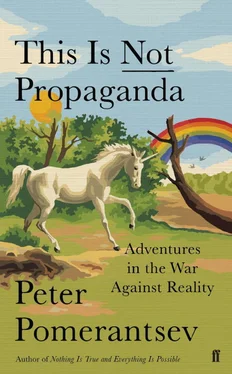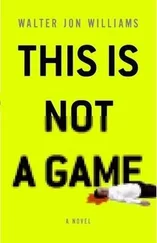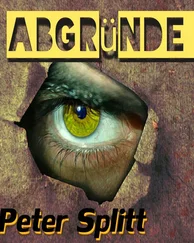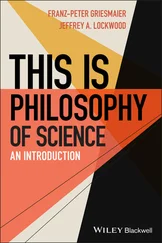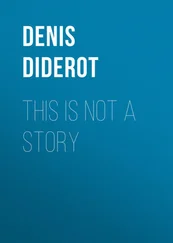Since 2015 the TV news had been full of stories of boats with refugees capsizing, the bloated corpses of toddlers washing up near sunbathing tourists on the beaches of Greek islands. So refugee families sent their strongest sons, used their last money to get them on the best boats possible, arming them with mobile phones, the most important navigational aid for the journey. But this in turn provoked negative reactions from those watching television in Europe and the US. One could feel sorry for drowning babies, but instead columns of young Syrian men were marching into Europe.
When Mary Ana spoke to her parents in Arizona, they would ask her why weren’t these men fighting? Why did they have mobile phones? Weren’t they all terrorists? Her parents were deeply Christian, watched Fox News. She could tell how they were torn between their concern for her and sympathy for her work, and what they were being told on television. Nationalist politicians used shots of the exodus of refugees walking across Europe to fuel the fear of being overrun by foreigners, with one such photo being used on a poster advocating Britain’s departure from the EU. ‘Breaking Point’, it read.
On 23 September the Russian and Syrian air forces launched forty air strikes a day on eastern Aleppo to prepare the way for a ground assault. [23]Over the next month there was an average of one attack every hour, every day and night. [24]Whole parts of the city went up in flames. The UN Special Envoy to Syria described the use of incendiary bombs that ‘create fireballs of such intensity that they light up the pitch darkness in Aleppo as if it were daylight’. [25]
‘We have twenty-seven more casualties,’ went the messages on Mary Ana’s phone. ‘About half of them children. Here are the photos… please tell people.’
As the rebels tried to break the siege, they shelled government-held western Aleppo indiscriminately too: the Syrian Observatory for Human Rights recorded seventy-four civilian deaths there in October. [26]
Mary Ana went on writing the reports, reciting the facts of crimes against humanity, facts that no longer seemed to have any power. On television Donald Trump was debating Hillary Clinton for the US presidency. He wanted to build a wall; he wanted to stop Muslims coming to America, he said Muslims were terrorists. He made numbers up as he went along: there were thirty million illegal immigrants in America; Clinton would let in 650 million more. [27]No one took his chances seriously. Mary Ana knew different, that many would vote for him back in Arizona. And if facts didn’t matter in Aleppo, why would they in the US?
The sitting US president, Barack Obama, had often talked about history having a ‘right side’ and a ‘wrong side’ (which he accused Russia of being on). Like Cold War leaders, he invoked the idea that history had an ‘arc’, a direction, a future, ‘the hope of a better day’. [28]But in Aleppo such lofty words appeared utterly meaningless. History’s direction was being barrel-bombed to nowhere. By November the siege was reaching its crescendo: the Russians seemed keen to finish it before a new US president came in. Schools, orphanages, hospitals were relocated into cellars. Even there bunker-busting bombs, the kind usually used to destroy military installations, were used to reach the inhabitants. [29]
Mary Ana was in Washington DC on the night of the election, 8 November. She watched the results in a bar by the Capitol. There were balloons: everyone was preparing for a Clinton victory. When the first states went to Trump, she sensed immediately he’d win. Two Republican campaign managers, already jolly, came up to her and told her she looked like the most distraught person in the bar. She walked out and grabbed a taxi back to the hotel. She sat in the back seat and wept. The taxi driver tried to console her: ‘Don’t worry, it will be OK.’ He sounded Middle Eastern. She asked where he was from. He said, ‘Afghanistan.’ She asked whether he had a green card. ‘No.’
She told him she was crying for him, not her. For the turning of immigrants into undesirables, of immigration into an evil.
Aleppo, the US election – they felt like different expressions of one phenomenon, where all the ‘evidence-based rules’ and ‘humanitarian norms’ Mary Ana had worked towards had become hollowed out. And in this new world the taxi driver would be the first victim.
In December 2016 Aleppo fell. Mary Ana helped organise the final evacuations of the acutely injured from the city. The Violations Documentations Centre in Syria estimates that 30,000 died in Aleppo between 2012 and 2016, the vast majority in opposition areas. [30]Over 70 per cent of those killed were civilians. The Syrian Network for Human Rights (which discounts reports provided by the Syrian regime) puts the civilian death toll in the war at 207,000, 94 per cent of which was at the hands of the Syrian government and Russian forces. [31]No numbers in this conflict are 100 per cent reliable. The UN gave up counting casualties in 2014, when it put the overall death count in the war at 400,000, give or take. [32]
Khaled had got out of Aleppo in August, when the rebels managed to open a road out of the town, his bag packed with video archive (a lot had been taken to Turkey previously). Some of the footage he shot in the city was included in a short documentary film about the White Helmets, which won an Oscar in 2017. [33]He travelled to LA but sounded a touch awkward about it when we talked: Khaled was glad his footage had been seen by so many, but he hadn’t filmed death and the destruction of his city in order to go to parties in Hollywood.
We met in Istanbul and then Amsterdam to conduct the interviews I have used in this book. Khaled wants to make films about the slivers of Syria still free from Assad and radical Islamists. Facts didn’t save Aleppo; perhaps telling stories is more powerful? He’s only in his early twenties but is trying to preserve his home on camera before what’s left disappears, whether from continuous bombardment or under the deluge of disinformation. ‘They say we are all terrorists. I need to show the world what we are really like.’
At first Mary Ana hadn’t taken the disinformation about Syria very seriously. Then she began to look further and saw that it was everywhere. When she punched ‘White Helmets’ into YouTube and found wall-to-wall coverage claiming that they were actually terrorists, or that they were actors and everything they did was staged, or that they were a British secret service psy-op, or that they didn’t actually exist at all… Mary Ana feared these stories were part of a larger effort to wipe out the facts regarding what happened in the country. [34]
But here she encountered the great paradox of the Syrian slaughter. In all the other historical examples of crimes against humanity that Mary Ana has looked into, there was always the excuse that the world wasn’t aware of what was going on. The Holocaust? We didn’t know (or pretended not to). The slaughter of Bosnian Muslims by Serbs in Srebrenica? Happened too quickly to react to. Genocide in Rwanda? Politicians claimed they hadn’t known the extent of what was happening. And now? Now everyone knows everything all the time. There’s an abundance of video, photo and eyewitness testimony, scientific analysis, SMSs, JPEGs, terabytes of data showing war crimes, communicated virtually in real time, all streamed on social media for everyone to see. And yet the reaction has been inversely proportional to the sheer mass of evidence.
But if everyone knows everything and still does nothing, feels nothing, and the truth about what happened isn’t locked into what Mary Ana has taken to calling ‘the psyche of history’, what does that lead to? That anyone can carry out mass murders and it’s now seen as just OK? A globe lacerated with black holes where no known norms apply?
Читать дальше
